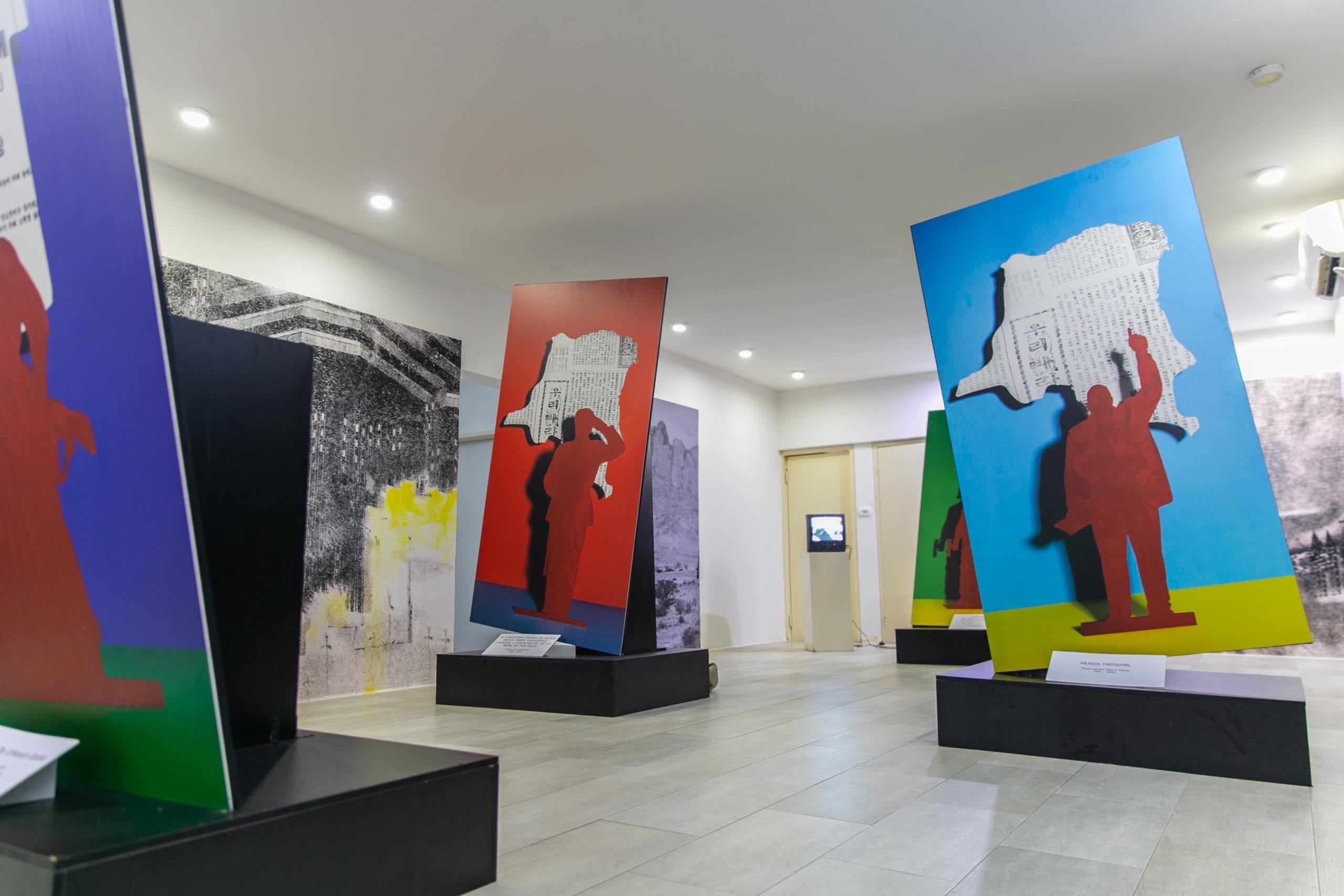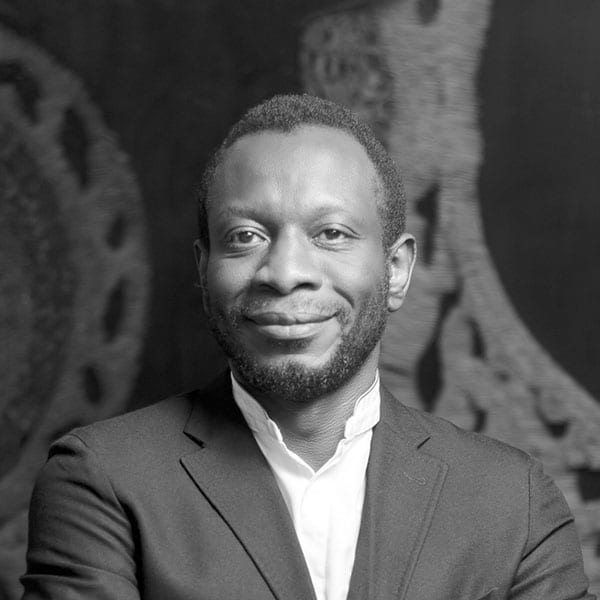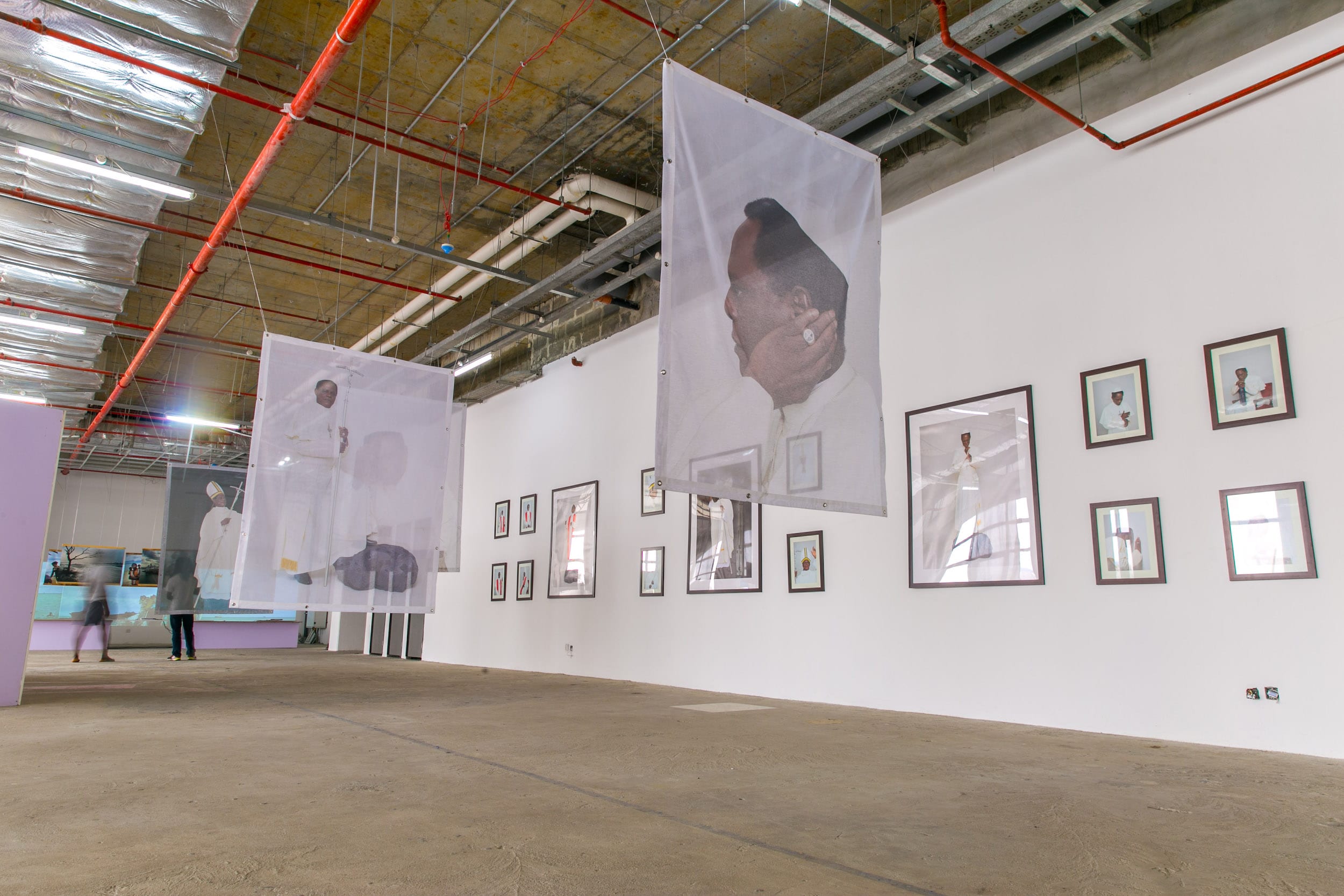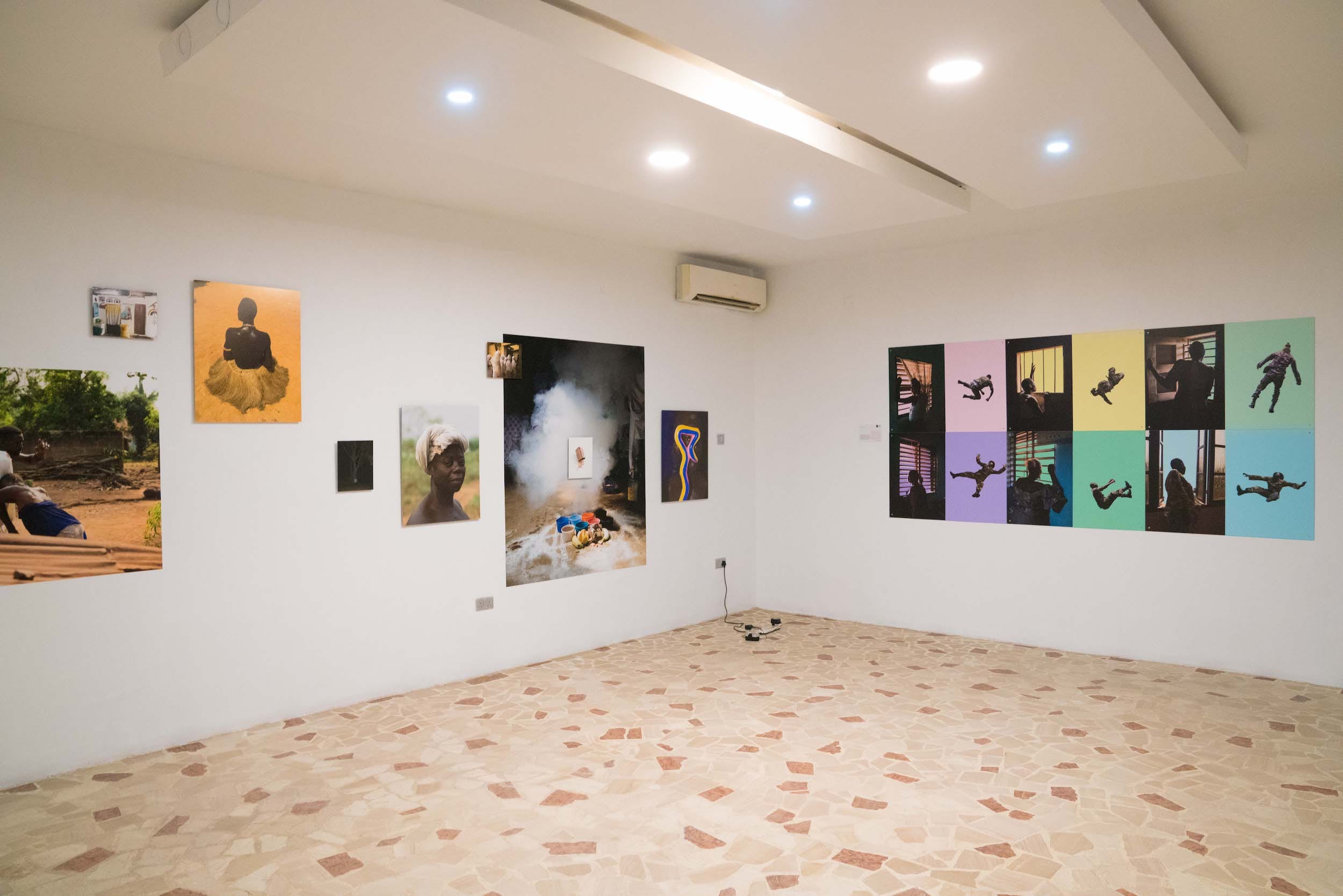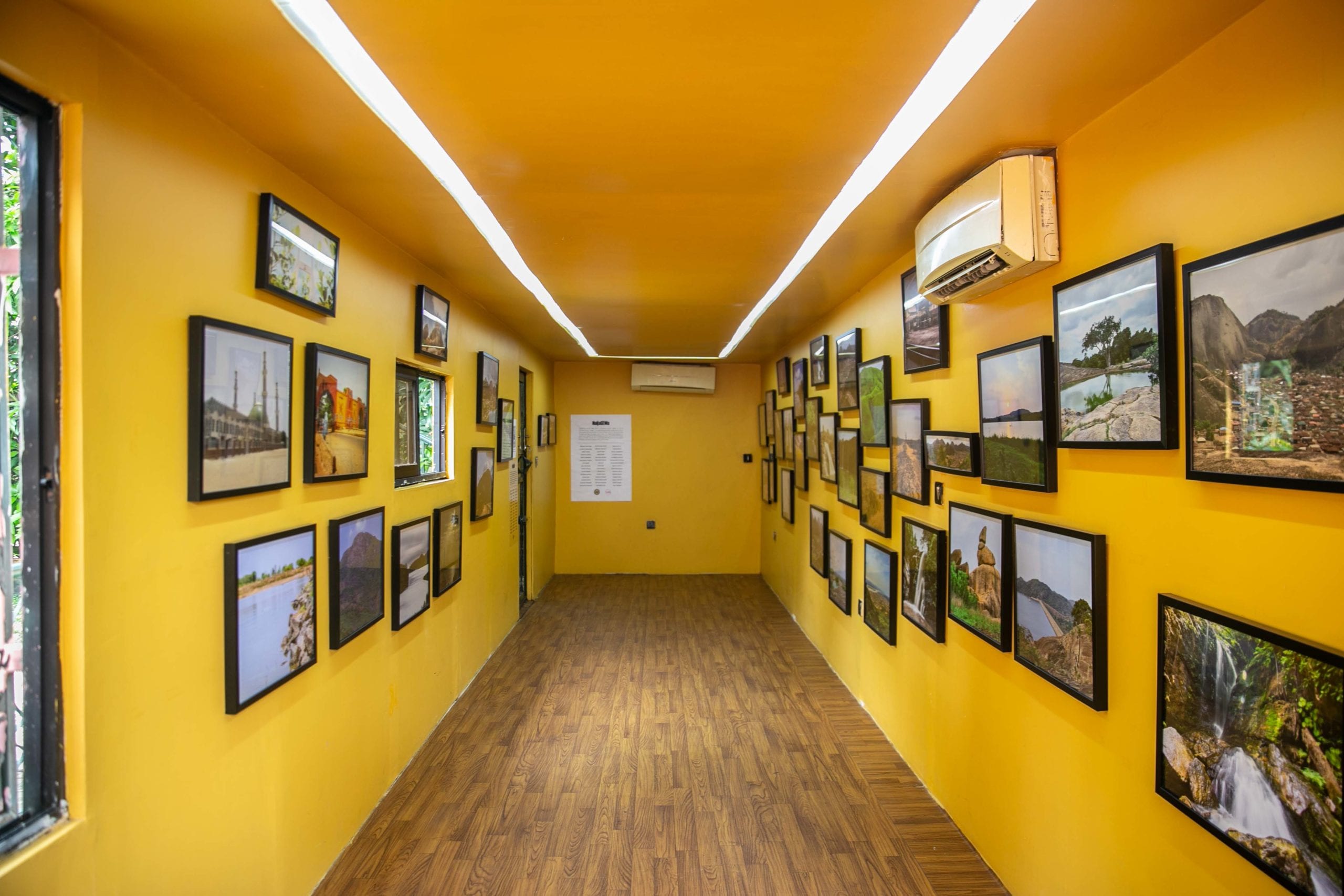In collaboration with Direct Digital – the leading international photographic equipment rental service – 1854 Media and British Journal of Photography presents Industry Insights, a series delving into the ins and outs of working in the photography industry.
“I’m interested in artists who are working with archival material, but not accepting the archive; resisting the authority of the archive, and pushing, and going deeper”
Returning to Nigeria in 2006 after studying abroad, curator Azu Nwagbogu noticed that the art scene in Lagos was heavily driven by commercial interests, with few public cultural spaces. “I wanted artists to do what artists love to do, and support their creative energies,” says Nwagbogu. The following year he founded the African Artists Foundation, and three years later, LagosPhoto Festival.
Now, 12 years later, LagosPhoto is thriving, with its most recent edition taking place online due to the pandemic. The festival aims to bring together leading international image-makers in conversation with local Nigerian photographers, “side-by-side, on an even keel”.
“We never niched ourselves to show only local or only African photography; it has always been about supporting the work of those who had embraced the sensibility, and the sensory impulse of the stories of the continent; that were making work in a way that was nuanced, and meaningful, and respectful,” Nwagbogu explains.
Currently, Nwagbogu is especially interested in seeing and commissioning art that works with archives. “If you follow the contemporary art scene in relation to the African diaspora, for the last 12 or even even 15 years,” he says, “it’s been dominated by this trope called Afrofuturism: a sort of resistance to Afro-pessimism. It’s about projecting to the future, the future imaginaries, and all that sort of future ideas about dystopia, utopia…” Running counter to this trope, recently Nwagbogu has been reading the work of Saidiya Hartman and considering ideas of what she terms the “past-present”.
“I’m interested in artists who are working with archival material, but not accepting the archive; resisting the authority of the archive, and pushing, and going deeper,” he says. Historically, archives have been created by those with an interest in controlling a given narrative: the conquerors, the colonisers. “If you resist the archive you can find other truths, other realities; other narratives,” says Nwagbogu. “I’m really excited by exploring deeper what it means to reimagine the archive: to resist the received knowledge. I’d love to commission work around this sort of idea.”
In fact, now is an ideal time to be making this kind of recursive, reflective work. “We are all syncopated right now,” says Nwagbogu of the current moment, with its unsteady pattern of international lockdowns. “Everyone is going through the same rhythm; we’re all stuck. We can’t really travel, we are not moving around, we are in this dystopic moment where the only thing we can really do that is meaningful is to slow down, and to appreciate the gap that we have, and then also to use that gap to really reflect on things that are available.”
This thinking informed the theme for LagosPhoto 2020: the Home Museum. A call for submissions invited prospective artists to “shine our eyes on our homes as if they were museums,” photographing and, in so doing, preserving “objects of virtue” that are often forgotten during the course of a busy life. “We asked citizens all over the world to look at and imagine a cosmology in our own home,” Nwagbogu describes. The resulting collection is a poignant mixture of coins, toys, old photographs, and every manner of ornament and tchotchke, united by their personal value to the person who made the photograph. It’s a project marked by its underpinning quality of tender and genuine care, the honouring of the everyday.
The Home Museum stands in stark contrast to some of the ongoing discussions taking place in museum studies today: whether the Benin Bronzes will ever be returned, for example. “These objects that were looted, and all these artefacts that are celebrated: they were valued by missionaries, by soldiers, by anthropologists, and ethnographers, and none of these people were African,” says Nwagbogu. “If we resist that archive, and we say: ‘okay, let’s take your word that they were valuable; what about the other things that we think are valuable, back home?’ Let’s focus on the histories that we’ve left behind, let’s focus on the new visual intellect.”
“We need to pay attention to these objects. And the wonderful thing that photography has is this power to remediate, and to bring the past into the present,” Nwagbogu continues. “If we weren’t all in this syncopated moment, we probably wouldn’t have this opportunity to be able to reflect on things in our storage, things in our homespace.” Rather than trying to visualise the future — difficult enough already, from the claustrophobic vantage point of lockdown — what if we tried, instead, to reflect the extraordinary moment we’re living through? “I think it’s important that we speak to the moment,” Nwagbogu says. “We really ought to be thinking about how our activities allow us to understand, [and] allow the future to understand the present.”
“Repose, rest, joy, is actually the best form of resistance towards the sort of expectation and burden that is placed on artists of Majority World countries, to be constantly in an existential struggle that diminishes our common humanity”
Similarly, Nwagbogu is wary of the contemporary inclination — at art festivals, photo festivals, on gallery walls and in photo competitions — towards representational extremes: “the burning car, the burning building, the earthquake, the flood, the drama.” “These extremes are where sensation resides,” he says. But, at the same time, “lazy sensation…creates no intervention”. This kind of radical imagery ultimately does little in practical terms to create systemic change; their viewer is reassuringly “informed”, and can leave the gallery feeling as though something has been resolved, though nothing has.
Given that social media has so radically democratised the sharing of information and lifestyle we are, as a society, better informed about one another’s daily existence than ever before; this can be, and should be, a strength. “The common humanity resides in these mundane things that we do,” says Nwagbogu. “I believe strongly that the only way to push back against the new wave of nationalism, and extremes of racism, and right-wing ideologies that are ventilated through social platforms, is to present the middle ground where we can all engage.” This middle ground might look something like the Home Museum, or it might look like photographs that present moments of reflection, maintenance, or care; perhaps parents with their children, the rituals of the domestic.
The Medium is the Message, a group exhibition curated by Nwagbogu in autumn, exemplifies this kind of middle ground. The exhibition text reads: “[This show] rejects the lazy depictions of blackness as majesty or misery (with very little gradation between the two). The work unveils many facets of black existence: including play, solitude and contemplation; it is a collection of work that spans the entire canopy of human emotion without kowtowing to exoticism.”
“I think that the onus is on Black artists, African artists and African photographers to be constantly didactic, or proving. The idea of The Medium is the Message is that repose is anathema to that approach,” Nwagbogu explains. “Repose, rest, joy, is actually the best form of resistance towards the sort of expectation and burden that is placed on artists of Majority World countries, to be constantly in an existential struggle that diminishes our common humanity.”
“A lot of people are not even used to seeing, say, a congregation of Black people sat having a conversation. If you see them, it means they’re agitating for something,” he continues. “That’s the reason it’s so important to distribute these ideas and to support it in a very, very thoughtful way.” The simple fact of being, and its representation in imagery, can be the most radical, most active form of resistance. “This is what I think is really important for a lot of young curators and photographers to pay attention to,” he says. Not the flash and burn of sensationalism, but rather the everyday; the archive; “the mundane rituals that keep us balanced”.
Find out more about Direct Digital here.

